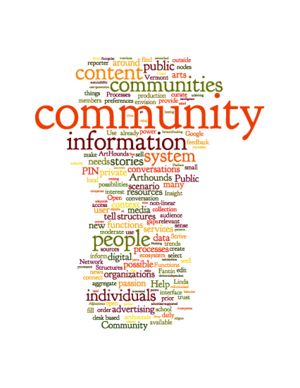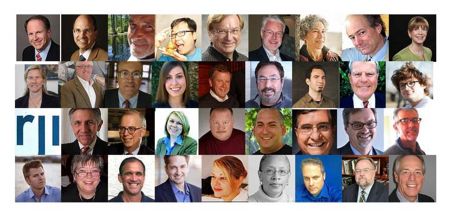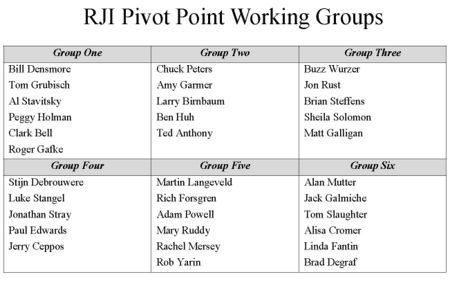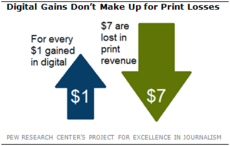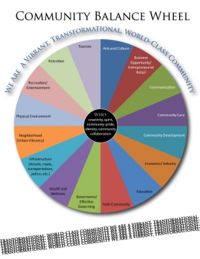Difference between revisions of "Rji-pivot-resources"
(→COMMUNITY: Assessing community information needs -- the Knight/Aspen reports / Oct. 2011 (Amy Garmer)) |
(→FOLLOWUP REPORTS) |
||
| (181 intermediate revisions by the same user not shown) | |||
| Line 1: | Line 1: | ||
| − | =RJI Pivot Point-Chicago= | + | {| align="right" |
| − | [[Category:Rji-pivot]] | + | | __TOC__ |
| − | == | + | |} |
| − | < | + | =RJI Pivot Point-Chicago / June 26-27, 2012 / OVERVIEW & RESOURCE LINKS= |
| − | * | + | <small> |
| − | *VIEW [http://www.flickr.com/photos/infovalet/sets/72157630144267624/ Photos of participants] (click on image to view mini-bio) | + | [http://newshare.com/wiki/index.php/Rji-pivot-resources PIVOT POINT HOME] / |
| − | * | + | [http://newshare.com/wiki/index.php/Rji-pivot-projects PROJECT SUMMARIES] / |
| − | * | + | [http://groups.google.com/group/rji-pivot-point GROUP BLOG] / |
| + | [http://newshare.com/wiki/index.php/Rji-pivot-principles PRINCIPLES] / | ||
| + | [http://newshare.com/pivot/participants.pdf PARTICIPANTS] / | ||
| + | [http://newshare.com/wiki/index.php/Rji-pivot-highlights KEY READINGS] / | ||
| + | [http://newshare.com/wiki/index.php/Rji-pivot-comments COMMENTS] / | ||
| + | [http://newshare.com/wiki/index.php/Rji-pivot-interviews INTERVIEWS]<br> | ||
| + | <hr> | ||
| + | </small>[[Category:Rji-pivot]] | ||
| + | Links, background, outcomes and next steps for a project-based gathering of the [http://www.rjionline.org Reynolds Journalism Institute]<br><br> | ||
| + | Follow our [http://groups.google.com/forum/?fromgroups#!forum/rji-pivot-point BLOG.]<br> | ||
| + | <h4> | ||
| + | KEY TERMS: Communties, engagement, revenue, sharing, identity, trust, privacy, authorship vs. co-creation, journalism, relevance, trust, curation, narrative/story-telling vs. data/information, data ownership, aggregation, disaggregation, "the industry", partner or partnerships, institutional authority vs. collective intelligence, bias, disintermediation, competition, hyper-local, actionable information, content.<br> | ||
| + | ==EIGHT PROJECTS== | ||
| + | [[Image:Rji-pivot-wordle1.jpg|300px|thumb|right|Day-two reports tag cloud]] | ||
| + | [[Image:Journalism-tag-cloud.jpg|300px|thumb|right|First-day tag cloud]] | ||
| + | *GO TO [http://newshare.com/wiki/index.php/Rji-pivot-projects WORKING PROJECT DESCRIPTIONS]</h4> | ||
| + | ==FOLLOWUP REPORTS== | ||
| + | *Tom Grubisich: [http://streetfightmag.com/2012/07/05/for-troubled-news-industry-is-it-enough-to-pivot/ "Street Fight" column: Is "pivot" enough?] | ||
| + | *Randy Picht: [http://rjionline.org/blog/pivot-point-chicago Goal is "actionable projects"] | ||
| + | *Bill Densmore: [https://www.rjionline.org/stories/pivot-point-next-steps An appeal for suggestions] / Industry needs to:<ul><ul> | ||
| + | *Work better together | ||
| + | *Develop revenue beyond advertising | ||
| + | *Forge deeper relationships with users</ul></ul> | ||
| + | |||
| + | ==NEWS ABOUT OUR PARTICIPANTS== | ||
| + | *[http://gigaom.com/2012/10/15/circa-wants-to-rethink-the-news-at-a-sub-atomic-level/ Matt Galligan / Ben Huh's Circa starts beta trials] (GigaOm, Oct. 13, 2012) ALSO: [http://www.geekwire.com/2012/journalism-startup-circa-launches-hopes-redefine-news-presentation/ GeekWire version] | ||
| + | |||
| + | ==WHO PARTICIPATED== | ||
| + | *READ/PRINT [http://newshare.com/pivot/participants.pdf Our participant list] / (Don Heider couldn't come) | ||
| + | *VIEW [http://www.flickr.com/photos/infovalet/sets/72157630144267624/ Photos of participants] (click on image to view mini-bio) / ALSO: [http://www.flickr.com/photos/infovalet/sets/72157630463389978/ CANDIDS] | ||
| + | *VIEW [http://newshare.com/wiki/index.php/Rji-pivot-intros What we brought and wanted to take away] | ||
| + | |||
| + | ==WORKING GROUP BULLET-POINT REPORTS: DAY ONE== | ||
| + | *[http://newshare.com/wiki/index.php/Rji-pivot-project-formulation1 WORKING GROUP ONE REPORT] | ||
| + | *[http://newshare.com/wiki/index.php/Rji-pivot-project-formulation2 WORKING GROUP TWO REPORT] | ||
| + | *[http://newshare.com/wiki/index.php/Rji-pivot-project-formulation3 WORKING GROUP TWO-FIVE REPORT]<BR> | ||
| + | |||
| + | ==FLIP PAD VISUALS: TRENDS, INDUSTRY FORCES AND MARKET FORCES== | ||
| + | *[http://www.flickr.com/photos/infovalet/sets/72157630302068066/detail/ POSTED: 30 trends, industry and market forces] | ||
| + | *[http://www.flickr.com/photos/infovalet/sets/72157630300020702/ FIRST BREAK: General trends affecting ability to deliver info] / [http://www.flickr.com/photos/infovalet/sets/72157630300020702/detail detail] | ||
| + | *[http://www.flickr.com/photos/infovalet/sets/72157630300692818/ SECOND BREAK: Industry forces in operation] / [http://www.flickr.com/photos/infovalet/sets/72157630300692818/detail detail] | ||
| + | *[http://www.flickr.com/photos/infovalet/sets/72157630300664470/ THIRD BREAK: Market forces at work / needs demands, switch costs, barriers] / [http://www.flickr.com/photos/infovalet/sets/72157630300664470/detail detail] | ||
| + | *[http://www.flickr.com/photos/infovalet/sets/72157630463553008/ Project VISUALS] | ||
| + | <br> | ||
| + | |||
| + | ==GETTING STARTED: PRECONVENING== | ||
| + | [[Image:Rji-participants1.jpg|450px|thumb|right|http://www.flickr.com/photos/infovalet/sets/72157630144267624/]] | ||
| + | *DOWNLOAD our [http://newshare.com/rji/pivotpoint.pdf Convening Purpose / Schedule / Logistics]<br> | ||
| + | <ul>The purpose of Pivot Point is to define and affirm a shared civic purpose, a common | ||
| + | vocabulary, and a framework for delivering trustworthy, compelling, actionable, communitysustaining information informed by the values, principles and purposes of journalism.</big><br> | ||
| + | <h4><ul> | ||
| + | *There is a strong desire to discover new ways of providing information in compelling ways that enable people to take action either in their public or private lives | ||
| + | *The meeting should generate a design framework that leads to experiments and projects undertaken subsequently by the group members | ||
| + | *We would like to focus on the question -- what can we do better together? | ||
| + | </ul> | ||
| + | |||
| + | ==UPDATING HIGHLIGHTS== | ||
| + | <big> | ||
| + | *For updating highlights go to the [http://newshare.com/wiki/index.php/Rji-pivot-highlights HIGHLIGHTS PAGE].</big> | ||
| + | |||
| + | |||
| + | ==COMMENTS SUBMITTED BY PARTICIPANTS== | ||
| + | *VIEW [http://newshare.com/wiki/index.php/Rji-pivot-comments submitted comments of Pivot Point participants] | ||
*Email additions to [mailto:densmorew@rjionline.org densmorew@rjionline.org] or use this wiki to add them yourself to the page | *Email additions to [mailto:densmorew@rjionline.org densmorew@rjionline.org] or use this wiki to add them yourself to the page | ||
| − | + | <br> | |
| − | == | + | ==PRE-CONVENING INTERVIEWS== |
| + | [[Image:Rji-pivot-working-groups-tuesday.jpg|450px|thumb|right|]] | ||
| − | + | *START [http://newshare.com/wiki/index.php/Rji-pivot-interviews The pre-convening INTERVIEW process] | |
| + | *VIEW [http://newshare.com/wiki/index.php/Rji-pivot-interviews Pre-convening interview notes] | ||
| + | <br> | ||
==WHITE PAPERS, LONGER ARTICLES AND BOOKS== | ==WHITE PAPERS, LONGER ARTICLES AND BOOKS== | ||
| Line 18: | Line 83: | ||
*In a 27-page report based on an in-depth study of proprietary sales and readership data from 37 U.S. daily newspapers, authors Tom Rosenstiel and Mark Jurkowitz conclude that "digital gains can't make up print loses and papers "are not well positioned to take advantage of ... growth in targeted advertising." The report [http://www.journalism.org/sites/journalism.org/files/SEARCHFORNEWREVENUEMODEL.pdf (download PDF)] quotes one executive:<br><br> | *In a 27-page report based on an in-depth study of proprietary sales and readership data from 37 U.S. daily newspapers, authors Tom Rosenstiel and Mark Jurkowitz conclude that "digital gains can't make up print loses and papers "are not well positioned to take advantage of ... growth in targeted advertising." The report [http://www.journalism.org/sites/journalism.org/files/SEARCHFORNEWREVENUEMODEL.pdf (download PDF)] quotes one executive:<br><br> | ||
<ul><ul> | <ul><ul> | ||
| − | <hr>< | + | <hr> |
| + | <big>"The big issue . . . is who gets the right to deliver the time and location sensitive message. it won't be everybody that gets the right to come into my pocket and beep me because I just walked into the mall . . . So how do we, as the newspaper in town, do what we need to do now to make sure a year or two years down the road, we are the ones with permission and a trusted relationship with the consumer."</big> | ||
<hr><br> | <hr><br> | ||
[[Image:Pej-chart.png|230px|thumb|left|Source: Pew Research Center]] | [[Image:Pej-chart.png|230px|thumb|left|Source: Pew Research Center]] | ||
| Line 32: | Line 98: | ||
</ul></ul> | </ul></ul> | ||
[[Image:Aspen-publications.jpg|110px|thumb|right|Aspen publications]] | [[Image:Aspen-publications.jpg|110px|thumb|right|Aspen publications]] | ||
| − | |||
| − | |||
====[http://www.knightcomm.org/roundtable-on-assessing-community-information-needs/ <b>COMMUNITY:</b> Assessing community information needs -- the Knight/Aspen reports] / Oct. 2011 (Amy Garmer)==== | ====[http://www.knightcomm.org/roundtable-on-assessing-community-information-needs/ <b>COMMUNITY:</b> Assessing community information needs -- the Knight/Aspen reports] / Oct. 2011 (Amy Garmer)==== | ||
| Line 56: | Line 120: | ||
*The author argues that the elements of social networks -- ratings, photos, networks for 'friends' which ultimately yields valuable information for advertisers -- have run their course. Instead, he argues for new services supported by money from the end users. "More money has got to change hands," he writes, seeking a new wave of transformational Internet technologies. | *The author argues that the elements of social networks -- ratings, photos, networks for 'friends' which ultimately yields valuable information for advertisers -- have run their course. Instead, he argues for new services supported by money from the end users. "More money has got to change hands," he writes, seeking a new wave of transformational Internet technologies. | ||
| + | [[Image:Mersey-book.JPG|110px|thumb|left|Mersey book]] | ||
====[http://www.amazon.com/Live-Future-Heres-How-Works/dp/0307591115 <b>BOOK:</b> ''I Live in the Future & Here's How It Works: Why Your World, Work, and Brain Are Being Creatively Disrupted,''] Sept. 2010 (Nick Bilton)==== | ====[http://www.amazon.com/Live-Future-Heres-How-Works/dp/0307591115 <b>BOOK:</b> ''I Live in the Future & Here's How It Works: Why Your World, Work, and Brain Are Being Creatively Disrupted,''] Sept. 2010 (Nick Bilton)==== | ||
*Excerpted from the Amazon summary: New York Times technology writer Nick Bilton's book explains how tech is disrupting media, creating the possibility for exciting, engaging experiences, creating the new "consumnivore," a world where immediacy trumps quality and quantity; why social networks, Internet openness and new gadgets are becoming the foundation for anchoring communities and taming information overload; why they are centered in "me" -- calling for a new approach to shaping content and why people pay for <i>experiences</i> not <i>content</i> and why great storytelling and extended relationships will prevail and enable businesses to engage with customers in new ways that go beyond merely selling information, instead creating unique and meaningful experiences. | *Excerpted from the Amazon summary: New York Times technology writer Nick Bilton's book explains how tech is disrupting media, creating the possibility for exciting, engaging experiences, creating the new "consumnivore," a world where immediacy trumps quality and quantity; why social networks, Internet openness and new gadgets are becoming the foundation for anchoring communities and taming information overload; why they are centered in "me" -- calling for a new approach to shaping content and why people pay for <i>experiences</i> not <i>content</i> and why great storytelling and extended relationships will prevail and enable businesses to engage with customers in new ways that go beyond merely selling information, instead creating unique and meaningful experiences. | ||
| + | |||
| + | ====<b>BOOK:</B><i>Can Journalism Be Saved? Rediscovering America's Appetite for News,</i> by Rachel Davis Mersey (2010)==== | ||
| + | *Pivot Point participant [http://www.flickr.com/photos/infovalet/7371610972/in/set-72157630144267624 Rachel Davis Mersey's] 2010 books argues that news organizations should abandon a mass-market approach and focus on meeting the information needs of individual, identifiable users. She writes: "The identity-based model of journalism is not about dumbing down the news. It is about serving individuals so well that they are getting what they want and what you—the journalist—think they need . . . the identity-based model of journalism focuses on serving the individual while rejecting the notion that general-circulation news has value." | ||
| + | <br> | ||
==SLIDES AND PRESENTATIONS== | ==SLIDES AND PRESENTATIONS== | ||
| − | [[ | + | ====[http://www.netnewscheck.com/article/19491/study-94-use-tablets-to-access-content TABLETS: New Frank Magid study for OPA finds rapid tablet adoption, high purchasing demographics and news reading]==== |
| − | ====Local America's Livability Index: Community ratings the community owns==== | + | [http://onlinepubs.ehclients.com/images/pdf/MMF-OPA_--_Portrait_of_Tablet_User-Wave_2_--_Jun12_%28Public%29.pdf VIEW STUDY SLIDES] / |
| − | Pivot Point participant Tom | + | Key findings: |
| + | *Tablet usage is exploding; 31% of the U.S. internet population, ages 8-64, uses a tablet, up from 12% in 2011 and projected to rise to 47% by early 2013 | ||
| + | *Tablets have become embedded in people’s lives; the majority of tablet users are on their tablets several times a day, averaging 14 hours per week. | ||
| + | *Content consumption continues to dominate tablet usage with 94% of tablet users accessing content & information regularly, and nearly three-quarters of tablet users accessing content at least daily. | ||
| + | *Tablet users have an appetite for paid content; 72% of tablet users have paid for tablet apps in the past year, and 61% of tablet users have purchased any tablet content in the past year. | ||
| + | *After seeing tablet ads, tablet users are driven to actions, including research and product purchase. Tablet users spent an average of $359 purchasing products using their tablets in the past year. | ||
| + | *Tablet content purchasers and cross-platform tablet users are more positive about tablet ads and are more likely to purchase products from their tablets. | ||
| + | <br> | ||
| + | |||
| + | ===[http://rjionline.org/news/what-are-owners-doing-their-mobile-media-devices <b>MOBILE / USABILITY:</b> RJI's mobile-media news consumption national survey] / June 19, 2012 (Roger Fidler)=== | ||
| + | *Reynolds Journalism Institute's Roger Fidler has been championing tablet technologies, and now studying their use, for a decade at RJI. In [[http://rjionline.org/sites/default/files/attachments/2012_fidler-jenner_asne_slides.pdf 18 slides packed with data,] Fidler profiles U.S. tablet and smart-phone usage. Fidler's deck is followed by 18 slides by J-Mizzou Prof. Mike Jenner reporting the tablet and mobile application efforts of U.S. dailies and weeklies. [http://rjionline.org/news/2012-rji-mobile-media-news-consumption-survey-description (Research methodology).] Key findings:<br> | ||
| + | [[Image:Fidler.jpg|180px|thumb|left|Roger Fidler]] | ||
| + | *Contrary to popular belief, the results of this survey show that young adults are seriously interested in consuming news provided by news organizations. Two-thirds (67%) of media consumers ages 18-34 said they used their mobile media devices to access news provided by news organizations for an average of 5.0 hours per week. Of those who also owned Apple iPads, 84% said they accessed news provided by news organizations for an average of 7.3 hours per week. | ||
| + | *Media consumers overall are most likely to use their mobile media devices for interpersonal communication and entertainment. As percentages of actual users, both categories ranked first or second across nearly all users of the individual devices and groups of devices. | ||
| + | *Media consumers ages 18-34 tend to spend significantly more time using their mobile media devices for nearly all categories of applications than those in older age groups. | ||
| + | *Well over half of all mobile media owners in all age groups tend to use their devices to keep up with news provided by news organizations. | ||
| + | *Owners of Apple iPads in all age groups were much more likely to consume news provided by news organizations and to average more time doing so than those who did not own Apple iPads. <br><br> | ||
| + | |||
| + | ====[http://newshare.com/pivot/localamerica.pdf COMMUNITIES: Local America's Livability Index: Community ratings the community owns] / (Tom Grubisich / Local America)==== | ||
| + | [[Image:Rji-community-balance-wheel.JPG|200px|thumb|right|CLICK TO ENLARGE / Source: The Gazette Co.]] | ||
| + | Pivot Point participant [http://www.flickr.com/photos/infovalet/7379223884/in/set-72157630144267624 Tom Grubisich,] a veteran journalist turned social entrepreneur, writes: "Communities need to know how healthy they are. Missing are comprehensive, balanced reports on livability -- everything from jobs and economy to education tofun to vision. Local America's Livability Index closes the gap with grades produced by data balanced by feedback. The community will own its ratings." Grubisich argues local media could play an important convening role -- and make money -- through managing "local health" ratings.[http://newshare.com/pivot/localamerica.pdf PDF DOWNLOAD LINK TO HIS SLIDE DECK.] | ||
| + | |||
===Key studies by the Pew Center on the Internet & Society=== | ===Key studies by the Pew Center on the Internet & Society=== | ||
*The Pew Center on the Internet & Society has been conducting public surveys and compiling demographic and usage studies for more than a decade on Internet usage, primarily in the United States, and much of the work of Kristin Purcell and Lee Raine has focused on news usage. Here are links to some recent studies most relevant to the work of RJI-Pivot Point-Chicago: | *The Pew Center on the Internet & Society has been conducting public surveys and compiling demographic and usage studies for more than a decade on Internet usage, primarily in the United States, and much of the work of Kristin Purcell and Lee Raine has focused on news usage. Here are links to some recent studies most relevant to the work of RJI-Pivot Point-Chicago: | ||
| Line 77: | Line 167: | ||
*To learn from (and not repeat) history, take a look at this 31-page slide deck report for the Newspaper Association of America will recommended online paid strategies. How much of this is relevant today; how much would be considered irrelevant or wrong? | *To learn from (and not repeat) history, take a look at this 31-page slide deck report for the Newspaper Association of America will recommended online paid strategies. How much of this is relevant today; how much would be considered irrelevant or wrong? | ||
| − | + | ||
| − | |||
==HIGHLIGHTED LINKS== | ==HIGHLIGHTED LINKS== | ||
| − | ====[http://stdout.be/2012/06/18/the-news-industry-and-its-problems/ OVERVIEW: Looking at the breadth of news industry's challenges] (Stijn | + | ====ADDED June 21 -- PRIVACY/MARKETING: [http://www.nytimes.com/2012/06/17/technology/acxiom-the-quiet-giant-of-consumer-database-marketing.html Can news organizations better Acxiom by becoming their users' "Infovalet"?] (Natasha Singer / NY Times, June 16)==== |
| − | *Participant Stijn Debrouwere takes a look at the breadth of the industry's challlenges in this blog post prepared especially for Pivot Point participant consideration. | + | *Headlined ''Acxiom, the Quiet Giant of Consumer Database marketing,'' the New York Times' Natasha Singer's takeout on the consumer database giant raises the question: Can news organizations [http://www.rjionline.org/news/paper-persona find a role helping consumers manage their persona?] Arizona State's [http://informationvalet.wordpress.com/2011/07/14/740/ Dan Gillmor addressed this network opportunity] and Bill Densmore has blogged about the [http://billdensmore.wordpress.com/2011/04/15/the-four-party-model-choice-control-for-consumers-opportunity-for-publishers/2/ four-party model idea.] And The Day, in New London is [http://newshare.com/wiki/index.php/Rji-pivot-resources#AUDIENCE:_A_legacy_newspaper_makes_the_leap:_Dan_Williams_and_The_Day.2C_New_London.2C_Conn._.2F__.28Feb._9.2C_2012.2C_N.E._News_Forum.29 moving in this direction.] The accidental Infovalet .... Can news organizations do this with transparency and intention, giving control of you persona to you? |
| + | |||
| + | ====ADDED JUNE 21 -- STORY FORM/PROTOCOL: [http://scripting.com/stories/2012/06/17/whatsNextForTwitter.html Twitter moving toward news system of future?] -- Dave Winer, Scripting News, June 17)==== | ||
| + | *Dave Winer, who invented the RSS protocol, authors a blog post about changes Twitter is putting into place to help find and display news stories, and he observes: "It would have been easier for the news industry to compete with Twitter if they had made this move themselves a couple of years ago by starting a Twitter-like network, with the all the features Twitter is now introducing (which all were already in the publications' RSS feeds). | ||
| + | |||
| + | ====ADDED JUNE 21 -- [http://www.emediavitals.com/content/mobile-mandate-new-content-models MOBILE: Hearst magazines data show mobile use skyrocketing] / (EMedia Vitals blog)==== | ||
| + | *Blog post says Hearst Digital Media reports year-to-year traffic from mobile devices to their magazine websites is up near 2,000 percent -- 19% of all web traffic is from mobile divices and 14% of new subscriptions came from them. Bottom line asserted: Mobile is the main event for content now. | ||
| + | ====ADDED June 21 -- STORY FORM: [http://www.poynter.org/how-tos/newsgathering-storytelling/178038/lets-blow-up-the-news-story-and-build-new-forms-of-journalism/ Poynter expert offer specifics of new story-form ideas] / (Bill Adair/Poynter Online, June 21)==== | ||
| + | *PolitiFacts Editor Bill Adair suggests learning to use the computational power of devices to sort and count; archive the backstory and alert and localize when there are developments. | ||
| + | ====ADDED June 21 -- STORY FORM: [http://www.nytimes.com/2012/06/16/us/16iht-currents16.html Do we want our users online, or offline?] / Anand Giridharadas/NY Times Currents, June 16)==== | ||
| + | * New York Times <i>Currents</i> blogger/columnist Anand Giridharadas explores a question that could be key for news/information providers -- do we want our users online, or off line? Are they more likely to engage with a service that helps them with their real life, or a service which ties them up online? | ||
| + | [[Image:Stin.jpg|110px|thumb|right|Stijn Debrouwere]] | ||
| + | |||
| + | ====[http://stdout.be/2012/06/18/the-news-industry-and-its-problems/ OVERVIEW: Looking at the breadth of news industry's challenges] (Stijn Debrouwere, June 18)==== | ||
| + | *Participant Stijn Debrouwere takes a look at the breadth of the industry's challlenges in this blog post prepared especially for Pivot Point participant consideration. Debrouwere works with The Gazette Co., of Cedar Rapids, Iowa, to create websites that "encourage exploration, tease out the context behind every story nad have the rich structure and metadata that's needed for repurposing across platforms." In a [[http://stdout.be/2012/05/04/fungible/ Pivot Point participant Stijn Debrouwere on replacing journalism SECOND must-read personal blog post on May 4, "Fungible,"] he asserts that journalism is being replaced by niche websites, alternate, socially-mediated content and offers, at the end, a prescription for "How to Survive." | ||
| + | |||
====[http://www.technologyofcommunity.net/about/ COMMUNITY: SourceMedia's blog -- "Field Guide for Community Builders], May 2012, Ben Smith/Amanda Styron)==== | ====[http://www.technologyofcommunity.net/about/ COMMUNITY: SourceMedia's blog -- "Field Guide for Community Builders], May 2012, Ben Smith/Amanda Styron)==== | ||
*In Cedar Rapids, Iowa, the Gazette Co., owner of the legacy daily and TV station, has formed SourceMedia to create new forms of community-building services. | *In Cedar Rapids, Iowa, the Gazette Co., owner of the legacy daily and TV station, has formed SourceMedia to create new forms of community-building services. | ||
| Line 89: | Line 193: | ||
*In two recent talks, the head of news products at Google Inc. spoke on [http://gigaom.com/2012/05/12/googles-head-of-news-newspapers-are-the-new-yahoo/ May 11 at the Nieman Foundation in Cambridge, Mass.,] and April 26 [http://paidcontent.org/2012/04/26/journalism/ Madrid,] painting a clear vision for how technology can and likely will reinvent journalism by rethinking the "story." Some of Richard Gingras' points: Content is king, less is more, forget the homepage, find the niche. And [http://civic.mit.edu/blog/mstem/the-head-of-google-news-on-the-future-of-news at Cambridge,] he talks about the need for evergreen background pages which provide context for ongoing stories. He calls for constant innovation, and giving reporters (the newsroom's most valuable asset) more tools. Gingras' father was production manager of <i>The Providence Journal.</i> Meanwhile, [http://www.poynter.org/latest-news/top-stories/175859/krishna-bharat-news-industry-futuremust-hire-restless-agents-of-change/ in Paris,] Google News inventor Krishna Bharat urges news organizations to hire "restless agents of change." | *In two recent talks, the head of news products at Google Inc. spoke on [http://gigaom.com/2012/05/12/googles-head-of-news-newspapers-are-the-new-yahoo/ May 11 at the Nieman Foundation in Cambridge, Mass.,] and April 26 [http://paidcontent.org/2012/04/26/journalism/ Madrid,] painting a clear vision for how technology can and likely will reinvent journalism by rethinking the "story." Some of Richard Gingras' points: Content is king, less is more, forget the homepage, find the niche. And [http://civic.mit.edu/blog/mstem/the-head-of-google-news-on-the-future-of-news at Cambridge,] he talks about the need for evergreen background pages which provide context for ongoing stories. He calls for constant innovation, and giving reporters (the newsroom's most valuable asset) more tools. Gingras' father was production manager of <i>The Providence Journal.</i> Meanwhile, [http://www.poynter.org/latest-news/top-stories/175859/krishna-bharat-news-industry-futuremust-hire-restless-agents-of-change/ in Paris,] Google News inventor Krishna Bharat urges news organizations to hire "restless agents of change." | ||
*See also: [http://www.niemanlab.org/2012/03/dave-winer-heres-why-every-news-organization-should-have-a-river/ Dave Winer: Curating the public rivers -- the new news-organization task] (March 2012, NiemanLab.org)<br>, who writes: "Therefore, the challenge for news organizations has been, for the last couple of decades, to learn how to incorporate the experience of these users and their new publishing tools, into their product -- the news." | *See also: [http://www.niemanlab.org/2012/03/dave-winer-heres-why-every-news-organization-should-have-a-river/ Dave Winer: Curating the public rivers -- the new news-organization task] (March 2012, NiemanLab.org)<br>, who writes: "Therefore, the challenge for news organizations has been, for the last couple of decades, to learn how to incorporate the experience of these users and their new publishing tools, into their product -- the news." | ||
| − | |||
| − | |||
| − | |||
| − | |||
====[http://www.niemanlab.org/2012/04/the-newsonomics-of-99-cent-media/ <B>PRICING:</b> Ken Doctor on the economics of 99-cent pages] / April 26, 2012, Ken Doctor, NiemanLab)==== | ====[http://www.niemanlab.org/2012/04/the-newsonomics-of-99-cent-media/ <B>PRICING:</b> Ken Doctor on the economics of 99-cent pages] / April 26, 2012, Ken Doctor, NiemanLab)==== | ||
| Line 99: | Line 199: | ||
====[http://www.netnewscheck.com/article/2012/04/15/18149/digital-differentiation-is-key-at-scripps <b>COLLABORATION: </B>Scripps chief Rich Boehne hopes collaboration in news industry is possible] April 15, 2012==== | ====[http://www.netnewscheck.com/article/2012/04/15/18149/digital-differentiation-is-key-at-scripps <b>COLLABORATION: </B>Scripps chief Rich Boehne hopes collaboration in news industry is possible] April 15, 2012==== | ||
*In an inteview with the NetNewsCheck.com website, the president/CEO of Scripps newspapers "hopes" for collaboration among newspaper groups; and explains why different platforms need different solutions (but shared content). | *In an inteview with the NetNewsCheck.com website, the president/CEO of Scripps newspapers "hopes" for collaboration among newspaper groups; and explains why different platforms need different solutions (but shared content). | ||
| − | [[Image:Wurzer.jpg|110px|thumb| | + | [[Image:Wurzer.jpg|110px|thumb|right|Buzz Wurzer]] |
| + | |||
====[http://newshare.com/pivot/rji-chicago-network-proposal.pdf NETWORKS: Pivot Point participant Buzz Wurzer offers a network "straw man" proposal for newspapers] / (May 25, 2012, Buzz Wurzer)==== | ====[http://newshare.com/pivot/rji-chicago-network-proposal.pdf NETWORKS: Pivot Point participant Buzz Wurzer offers a network "straw man" proposal for newspapers] / (May 25, 2012, Buzz Wurzer)==== | ||
*Former daily newspaper advertising executive and new-media strategist Buzz Wurzer offers a three-page, bullet-point summary of the core issues and key necessary action steps for newspapers in this PDF download. He summarizes the old and new information content models required, lists key user local and general information needs, and suggests a combined local-national network to address them. | *Former daily newspaper advertising executive and new-media strategist Buzz Wurzer offers a three-page, bullet-point summary of the core issues and key necessary action steps for newspapers in this PDF download. He summarizes the old and new information content models required, lists key user local and general information needs, and suggests a combined local-national network to address them. | ||
| Line 118: | Line 219: | ||
====[http://allthingsd.com/20120507/content-is-no-longer-king/ <b>AUDIENCE:</b> Digital startup CEO urges legacy media to focus on understanding audience, not just content] May 7, 2012, All Things Digital)==== | ====[http://allthingsd.com/20120507/content-is-no-longer-king/ <b>AUDIENCE:</b> Digital startup CEO urges legacy media to focus on understanding audience, not just content] May 7, 2012, All Things Digital)==== | ||
*Ben Elowitz is cofounder/CEO of Wetpaint, a next-generation media platform company. He says media organizations are putting too much effort into content management and not enough into audience management. He says focus on insights, channel selection and date for optimization of content, packaging and timing. | *Ben Elowitz is cofounder/CEO of Wetpaint, a next-generation media platform company. He says media organizations are putting too much effort into content management and not enough into audience management. He says focus on insights, channel selection and date for optimization of content, packaging and timing. | ||
| − | ====[http:// | + | |
| − | * | + | ====PRIVACY: [http://identity-trust.com/?p=648 Facebook and the future of your face;] [http://www.technologyreview.com/news/428051/privacy-laws-turn-europe-into-economic-laboratory/ Europe as privacy enabler?] / (Mark Lizar, Identity Trust and MIT Tech Review)==== |
| + | *Two links -- one painting an Orwellian future in which Facebook uses facial recognize to serve custom advertising to you whereever you are. The other suggests that the European Union's far-stricted privacy regulations may be creating an opportunity for companies to emerge which help individuals manage their personas. / http://identity-trust.com/?p=648 /http://www.technologyreview.com/news/428051/privacy-laws-turn-europe-into-economic-laboratory/ | ||
| + | |||
| + | ====<B>AUDIENCE:</B> A legacy newspaper makes the leap: Dan Williams and The Day, New London, Conn. / (Feb. 9, 2012, N.E. News Forum)==== | ||
| + | {| border="1" cellspacing="0" align="left" cellpadding="2" style="margin-left: 1em; margin-bottom: 0.5em; margin-right: 2em;" | ||
| + | |- | ||
| + | ||http://www.theday.com/Assets/images/thedaycom_Logo11.png | ||
| + | |} | ||
| + | *Few mid-sized U.S. dailies have made as exensive a commitment to changing to a more "infovalet" business model than <i>The Day,</i> in New London, Conn. (circ. 20,468, daily). Last year, Publisher Gary Farrugia hired Dan Williams from the New York Times Co. to begin a serious audience-development effort. In one important shift in terminology, <i>The Day</i> now refers to its customers as "members" not "subscribers," and adopted a multi-tiered membership model for services that span print, web, mobile and commerce. <i>The Day</i> invested many thousands in user demographic data about its 108,000-household primary market from Nielsen and other sources that allows them to focus on "users" not "addresses"; adopted a single-sign-on user authentication across all platforms; and offers loyalty programs and transaction opportunities for ticket sales and other items.Their goal is to be "a hub of distributed content and conversation with a local connection from a trusted source." Williams presented slides on the transition at an industry conference in early June. [http://newshare.com/pivot/theday.pdf (DOWNLOAD PDF SLIDES).] And [http://newshare.typepad.com/nenf/2012/02/newspaper-metered-subscriptions-two-case-studies.html in a talk] to the New England Newspaper & Press Association convention in February, <i>The Day's</i> Farrugia explained Williams' work. [http://densmore.hipcast.com/download/509e6b16-4b64-ff7d-d893-61be319f8b04.mp3 (LINK TO AUDIO -- 4.7mb, 17 mins.).] Other resources include <i>The Day's</i> [http://www.clickshare.com/new-london-conn-day-unveils-clickshare-powered-multiplatform-subscription-services original launch announcement] and a [http://www.niemanlab.org/2011/10/the-newsonomics-of-100-reach/ review of their approach] by industry analyst Ken Doctor. | ||
| + | *<i>The Day's</i> transformation appears similar to the "Paper to Persona" approach advocated in the Aug., 2011 [http://www.papertopersona.org white paper] from the Reynolds Journalism Institute. Read an [http://newshare.com/pivot/paperpersona.pdf six-page EXECUTIVE SUMMARY (PDF)] of the paper. | ||
====[http://www.digiday.com/publishers/publishers-need-better-tablet-content-strategies/ <b>USABILITY:</b> HTML5, other open technologies doom "issue" approach to tablet services?] / June 6, 2012 (Densmore)==== | ====[http://www.digiday.com/publishers/publishers-need-better-tablet-content-strategies/ <b>USABILITY:</b> HTML5, other open technologies doom "issue" approach to tablet services?] / June 6, 2012 (Densmore)==== | ||
| Line 139: | Line 249: | ||
==ADDITIONAL POSSIBLY RELEVANT LINKS== | ==ADDITIONAL POSSIBLY RELEVANT LINKS== | ||
| + | *[http://www.editorsweblog.org/2012/07/02/at-digital-first-pop-up-newsrooms-take-to-the-road Digital First's "pop-up" mobile newsroom vans] (July 5 / Editor's Weblog) | ||
| + | * [http://newshare.com/wiki/index.php/Rji-pivot-comments COMMENTS from Pivot Point participants] | ||
* [http://gigaom.com/2012/06/17/publishers-your-shares-data-is-wrong-part-one-of-two/METRICS: Why a careful count of "shareing" link traffic is important -- and complicated] (GigaOm / Sachin Kamdar, CEO of Parse.ly) | * [http://gigaom.com/2012/06/17/publishers-your-shares-data-is-wrong-part-one-of-two/METRICS: Why a careful count of "shareing" link traffic is important -- and complicated] (GigaOm / Sachin Kamdar, CEO of Parse.ly) | ||
* [http://www.yelvington.com/content/what-newsrooms-should-learn-kodak STRATEGIC: Steve Yelvington on what newspapers should learn from the bankruptcy of Kodak] (Jan. 2012) | * [http://www.yelvington.com/content/what-newsrooms-should-learn-kodak STRATEGIC: Steve Yelvington on what newspapers should learn from the bankruptcy of Kodak] (Jan. 2012) | ||
| Line 150: | Line 262: | ||
* [http://thelede.blogs.nytimes.com/2012/04/26/rupert-murdoch-on-the-future-of-news/ FUTURE: As an aside during phone-hacking testimony, Murdoch opinions on the future of newspapers] | * [http://thelede.blogs.nytimes.com/2012/04/26/rupert-murdoch-on-the-future-of-news/ FUTURE: As an aside during phone-hacking testimony, Murdoch opinions on the future of newspapers] | ||
* [http://gigaom.com/2012/05/25/new-orleans-newspapers-and-the-beginning-of-the-end/ FUTURE: New Orleans, newspapers and the beginning of the end] (Matthew Ingram, GigaOm, 05-25-12 | * [http://gigaom.com/2012/05/25/new-orleans-newspapers-and-the-beginning-of-the-end/ FUTURE: New Orleans, newspapers and the beginning of the end] (Matthew Ingram, GigaOm, 05-25-12 | ||
| − | * [http://scattergather.razorfish.com/1136/2012/04/14/the-pleasures-and-perils-of-personalized-news/ PERSONALIZATION: ''The perils and pleasures of personalized news''] | + | * [http://scattergather.razorfish.com/1136/2012/04/14/the-pleasures-and-perils-of-personalized-news/ PERSONALIZATION: ''The perils and pleasures of personalized news''] (Tosca Fasso / Scatter/Gather blog at Razorfish |
* [http://www.economist.com/node/21553017 IDEAS: The third industrial revolution] (The Economist, April 2012) | * [http://www.economist.com/node/21553017 IDEAS: The third industrial revolution] (The Economist, April 2012) | ||
* [http://knightfoundation.org/press-room/speech/history-future-news-what-1767-tells-us-about-2100/ SPEECH: A history of the future of news: What 1767 tells us about 2100] / Knight Foundation's Eric Newton, Nov. 2011 | * [http://knightfoundation.org/press-room/speech/history-future-news-what-1767-tells-us-about-2100/ SPEECH: A history of the future of news: What 1767 tells us about 2100] / Knight Foundation's Eric Newton, Nov. 2011 | ||
Latest revision as of 21:12, 1 November 2016
RJI Pivot Point-Chicago / June 26-27, 2012 / OVERVIEW & RESOURCE LINKS
PIVOT POINT HOME /
PROJECT SUMMARIES /
GROUP BLOG /
PRINCIPLES /
PARTICIPANTS /
KEY READINGS /
COMMENTS /
INTERVIEWS
Links, background, outcomes and next steps for a project-based gathering of the Reynolds Journalism Institute
Follow our BLOG.
KEY TERMS: Communties, engagement, revenue, sharing, identity, trust, privacy, authorship vs. co-creation, journalism, relevance, trust, curation, narrative/story-telling vs. data/information, data ownership, aggregation, disaggregation, "the industry", partner or partnerships, institutional authority vs. collective intelligence, bias, disintermediation, competition, hyper-local, actionable information, content.
EIGHT PROJECTS
FOLLOWUP REPORTS
- Tom Grubisich: "Street Fight" column: Is "pivot" enough?
- Randy Picht: Goal is "actionable projects"
- Bill Densmore: An appeal for suggestions / Industry needs to:
- Work better together
- Develop revenue beyond advertising
- Forge deeper relationships with users
NEWS ABOUT OUR PARTICIPANTS
- Matt Galligan / Ben Huh's Circa starts beta trials (GigaOm, Oct. 13, 2012) ALSO: GeekWire version
WHO PARTICIPATED
- READ/PRINT Our participant list / (Don Heider couldn't come)
- VIEW Photos of participants (click on image to view mini-bio) / ALSO: CANDIDS
- VIEW What we brought and wanted to take away
WORKING GROUP BULLET-POINT REPORTS: DAY ONE
FLIP PAD VISUALS: TRENDS, INDUSTRY FORCES AND MARKET FORCES
- POSTED: 30 trends, industry and market forces
- FIRST BREAK: General trends affecting ability to deliver info / detail
- SECOND BREAK: Industry forces in operation / detail
- THIRD BREAK: Market forces at work / needs demands, switch costs, barriers / detail
- Project VISUALS
GETTING STARTED: PRECONVENING
- DOWNLOAD our Convening Purpose / Schedule / Logistics
- The purpose of Pivot Point is to define and affirm a shared civic purpose, a common
vocabulary, and a framework for delivering trustworthy, compelling, actionable, communitysustaining information informed by the values, principles and purposes of journalism.
- There is a strong desire to discover new ways of providing information in compelling ways that enable people to take action either in their public or private lives
- The meeting should generate a design framework that leads to experiments and projects undertaken subsequently by the group members
- We would like to focus on the question -- what can we do better together?
- For updating highlights go to the HIGHLIGHTS PAGE.
- VIEW submitted comments of Pivot Point participants
- Email additions to densmorew@rjionline.org or use this wiki to add them yourself to the page
- In a 27-page report based on an in-depth study of proprietary sales and readership data from 37 U.S. daily newspapers, authors Tom Rosenstiel and Mark Jurkowitz conclude that "digital gains can't make up print loses and papers "are not well positioned to take advantage of ... growth in targeted advertising." The report (download PDF) quotes one executive:
- Why advertisers no longer need media
- Biggest obstacle: The "culture war"
- Industry execs finally talking to each other?
- ‘The future may not be in advertising’
- Focus on functions and values, not tools and procedures
- What about leadership?
- People who figure out the audience will own the future
- Beginning in 2008 with the Knight Commission on the Information Needs of Communities, the Aspen Institute's Communications and Society Program has commissioned a series of booklet-format white papers. Each is in a FREE downloadable PDF format with short executive summaries. The three most relevant to Pivot Point are Michael R. Fancher's "Reimagining Journalism: Local News for a Networked World," (download download PDF) Peter Levine's "Civic Engagement and Community Information: Five Strategies to Revive Civic Communication," (PDF) and Richard C. Harwood's "Assessing Community Information Needs: A Practical Guide."
- Also: PDF download
- Reynolds Journalism Institute consulting researcher Bill Densmore explains why news organizations must move from a physical-product-centered business to one focused on service -- helping people find the information they need to get through their day and be more engaged citizens. He argues this means helping users with their "personas" -- the demographics and preferences presented to service providers. He cites this as a new business opportunity for news organzations and lays out a scenario for a non-profit Information Trust Association which could transparently establish protocols and business rules for a "shared-user network for trust, identity, privacy and information commerce." (PDF BACKGROUNDER AND COMMENTS ON THE ITA PROJECT)
- In 2008, Memphis Commercial Appeal Editor Chris Peck, a co-founder of Journalism That Matters, authored "The Next Newsroom," a visionary effort to reimagine the mission, structure, ownership and funding of a 21st-century print-and-digital local news service. While an effort to find a target community to test the vision did not advance, the plan (DOWNLOAD PDF) remains a source of dozens of transformative ideas. Peck is also on the board of the American Society of News Editors.
- Most of us have heard that Paul Steinle and Sara Brown, ex-journalism practitioners and professors, took to the roads of America to visit and profile 50 great community dailies. Now they're turning there research into recommendations about what's wrong, what's right and what needs to happen, in the linked AJR article, as well as in a longer paper prepared for delivery in August to the annual AEJMC convention DOWNLOAD PDF.
- The author argues that the elements of social networks -- ratings, photos, networks for 'friends' which ultimately yields valuable information for advertisers -- have run their course. Instead, he argues for new services supported by money from the end users. "More money has got to change hands," he writes, seeking a new wave of transformational Internet technologies.
- Excerpted from the Amazon summary: New York Times technology writer Nick Bilton's book explains how tech is disrupting media, creating the possibility for exciting, engaging experiences, creating the new "consumnivore," a world where immediacy trumps quality and quantity; why social networks, Internet openness and new gadgets are becoming the foundation for anchoring communities and taming information overload; why they are centered in "me" -- calling for a new approach to shaping content and why people pay for experiences not content and why great storytelling and extended relationships will prevail and enable businesses to engage with customers in new ways that go beyond merely selling information, instead creating unique and meaningful experiences.
- Pivot Point participant Rachel Davis Mersey's 2010 books argues that news organizations should abandon a mass-market approach and focus on meeting the information needs of individual, identifiable users. She writes: "The identity-based model of journalism is not about dumbing down the news. It is about serving individuals so well that they are getting what they want and what you—the journalist—think they need . . . the identity-based model of journalism focuses on serving the individual while rejecting the notion that general-circulation news has value."
- Tablet usage is exploding; 31% of the U.S. internet population, ages 8-64, uses a tablet, up from 12% in 2011 and projected to rise to 47% by early 2013
- Tablets have become embedded in people’s lives; the majority of tablet users are on their tablets several times a day, averaging 14 hours per week.
- Content consumption continues to dominate tablet usage with 94% of tablet users accessing content & information regularly, and nearly three-quarters of tablet users accessing content at least daily.
- Tablet users have an appetite for paid content; 72% of tablet users have paid for tablet apps in the past year, and 61% of tablet users have purchased any tablet content in the past year.
- After seeing tablet ads, tablet users are driven to actions, including research and product purchase. Tablet users spent an average of $359 purchasing products using their tablets in the past year.
- Tablet content purchasers and cross-platform tablet users are more positive about tablet ads and are more likely to purchase products from their tablets.
- Reynolds Journalism Institute's Roger Fidler has been championing tablet technologies, and now studying their use, for a decade at RJI. In [18 slides packed with data, Fidler profiles U.S. tablet and smart-phone usage. Fidler's deck is followed by 18 slides by J-Mizzou Prof. Mike Jenner reporting the tablet and mobile application efforts of U.S. dailies and weeklies. (Research methodology). Key findings:
- Contrary to popular belief, the results of this survey show that young adults are seriously interested in consuming news provided by news organizations. Two-thirds (67%) of media consumers ages 18-34 said they used their mobile media devices to access news provided by news organizations for an average of 5.0 hours per week. Of those who also owned Apple iPads, 84% said they accessed news provided by news organizations for an average of 7.3 hours per week.
- Media consumers overall are most likely to use their mobile media devices for interpersonal communication and entertainment. As percentages of actual users, both categories ranked first or second across nearly all users of the individual devices and groups of devices.
- Media consumers ages 18-34 tend to spend significantly more time using their mobile media devices for nearly all categories of applications than those in older age groups.
- Well over half of all mobile media owners in all age groups tend to use their devices to keep up with news provided by news organizations.
- Owners of Apple iPads in all age groups were much more likely to consume news provided by news organizations and to average more time doing so than those who did not own Apple iPads.
- The Pew Center on the Internet & Society has been conducting public surveys and compiling demographic and usage studies for more than a decade on Internet usage, primarily in the United States, and much of the work of Kristin Purcell and Lee Raine has focused on news usage. Here are links to some recent studies most relevant to the work of RJI-Pivot Point-Chicago:
- Understanding local-news enthusiasts / Local news usage and creation / News in a networked world *How people learn about their community / The citizen / By the numbers
- How we use social media / The Internet's social side / Advertising and transactions
- BOOK: Networked individualism Also: view video podcast
- A 2008 presentation to the Carnegie-Knight Initiative for the Future of Journalism by Lindsay Schutte of Frank N. Magid Associates Inc., separates the Boomer, Gen X and Millenial generations, describing their use of social media and other attributes.
- In 10 slides, Boston-based Forrester researcher James McQuivey uses the example of his own family budget to illustrate that users pay for access to content rather than the content itself. How do we take this fact into consideration as we reinvent the form and delivery of news? Does this mean that content companies that are just selling content (without an associated curation/personalization service) are heading toward oblivion? Or can timely, highly unique content command user payment on its own?
- To learn from (and not repeat) history, take a look at this 31-page slide deck report for the Newspaper Association of America will recommended online paid strategies. How much of this is relevant today; how much would be considered irrelevant or wrong?
- Headlined Acxiom, the Quiet Giant of Consumer Database marketing, the New York Times' Natasha Singer's takeout on the consumer database giant raises the question: Can news organizations find a role helping consumers manage their persona? Arizona State's Dan Gillmor addressed this network opportunity and Bill Densmore has blogged about the four-party model idea. And The Day, in New London is moving in this direction. The accidental Infovalet .... Can news organizations do this with transparency and intention, giving control of you persona to you?
- Dave Winer, who invented the RSS protocol, authors a blog post about changes Twitter is putting into place to help find and display news stories, and he observes: "It would have been easier for the news industry to compete with Twitter if they had made this move themselves a couple of years ago by starting a Twitter-like network, with the all the features Twitter is now introducing (which all were already in the publications' RSS feeds).
- Blog post says Hearst Digital Media reports year-to-year traffic from mobile devices to their magazine websites is up near 2,000 percent -- 19% of all web traffic is from mobile divices and 14% of new subscriptions came from them. Bottom line asserted: Mobile is the main event for content now.
- PolitiFacts Editor Bill Adair suggests learning to use the computational power of devices to sort and count; archive the backstory and alert and localize when there are developments.
- New York Times Currents blogger/columnist Anand Giridharadas explores a question that could be key for news/information providers -- do we want our users online, or off line? Are they more likely to engage with a service that helps them with their real life, or a service which ties them up online?
- Participant Stijn Debrouwere takes a look at the breadth of the industry's challlenges in this blog post prepared especially for Pivot Point participant consideration. Debrouwere works with The Gazette Co., of Cedar Rapids, Iowa, to create websites that "encourage exploration, tease out the context behind every story nad have the rich structure and metadata that's needed for repurposing across platforms." In a [Pivot Point participant Stijn Debrouwere on replacing journalism SECOND must-read personal blog post on May 4, "Fungible," he asserts that journalism is being replaced by niche websites, alternate, socially-mediated content and offers, at the end, a prescription for "How to Survive."
- In Cedar Rapids, Iowa, the Gazette Co., owner of the legacy daily and TV station, has formed SourceMedia to create new forms of community-building services.
- In two recent talks, the head of news products at Google Inc. spoke on May 11 at the Nieman Foundation in Cambridge, Mass., and April 26 Madrid, painting a clear vision for how technology can and likely will reinvent journalism by rethinking the "story." Some of Richard Gingras' points: Content is king, less is more, forget the homepage, find the niche. And at Cambridge, he talks about the need for evergreen background pages which provide context for ongoing stories. He calls for constant innovation, and giving reporters (the newsroom's most valuable asset) more tools. Gingras' father was production manager of The Providence Journal. Meanwhile, in Paris, Google News inventor Krishna Bharat urges news organizations to hire "restless agents of change."
- See also: Dave Winer: Curating the public rivers -- the new news-organization task (March 2012, NiemanLab.org)
, who writes: "Therefore, the challenge for news organizations has been, for the last couple of decades, to learn how to incorporate the experience of these users and their new publishing tools, into their product -- the news." - In a physical-product world, producers price their product when it goes out the door into the marketplace; differentiation to end users is difficult. On the web and mobile, all kinds of pricing experiments and variations are possible when the digital service has no fixed form and can be sold just in time to a unique user. Apple proved the value of the 99-cent song. In this NiemanLab.org blog post, news industry veteran-turned-analyst considers pricing options. In Minneapolis, the Star Tribune is experimenting with variable-priced product bundles.
- In an inteview with the NetNewsCheck.com website, the president/CEO of Scripps newspapers "hopes" for collaboration among newspaper groups; and explains why different platforms need different solutions (but shared content).
- Former daily newspaper advertising executive and new-media strategist Buzz Wurzer offers a three-page, bullet-point summary of the core issues and key necessary action steps for newspapers in this PDF download. He summarizes the old and new information content models required, lists key user local and general information needs, and suggests a combined local-national network to address them.
- It's a question of intent. In a 40-minute talk delivered at RJI-Mizzou in June, 2010, antitrust-law expert Thom Lambert explains case-law precedents in which collaboration by competitors was held to be not anticompetitive or in restraint of trade. Would this hold true for an Information Trust Association?
- New York Times media report David Carr examines the new relationship of the San Diego daily to its community, now that its publisher is a real-estate developer who actively, publicly and without apologies, is championing issues of personal interest. How is this different from Bill Loeb and the Manchester Union Leader a generation ago? Is this the new "engagement" with the public? Or is it something different?
- In Philadelphia, Sean Blanda of TechnicallyMedia describes who "we need to reinvent the article." A few points: Some content never dies, and therefore need not be in a timely article, but simply linkable from current news accounts. The atomic unit of news is the fact. Accounts should allow for instant feedback. See also: Jeff Jarvis' "News Articles as Assets and Paths".
- This post is specifically aimed at some of Apple's faux reality UI designs such as realistic-looking book pages, bookshelves as indexes to reading content, etc. (something Amazon does as well on the Kindle Fire). But there is a larger message here which is that attempting to translate traditional forms into digital spaces (or to replicate rather than recreate any design convention from an old medium to a new one) is a mistake from the get go. So, touch-tone phones don't look like dial phones, digital watches are not made with analog hands, etc. We know that the newspaper business made this mistake big time in replicating printed news reading on the web. Newspaper paywalls, as currently structured, are attempts to translate physical home delivery to the web. Magazines are still trying to sell "issues" rather than news streams. Etc. The challenge at PivotPoint is to develop ideas that are not skeuomorphic (as defined in the post), not just in terms of UI design, but in terms of complete content delivery concepts. Things like Tapin Bay Area fit this bill. I think it's a constraint we need to put into the process for PivotPoint: let's not fall into the trap of translating stuff from one medium to another. Let's invent stuff that's native to the digital technology of the 21st C, just as physical newspapers were native to the mechanical technologies of the 19th C. Chuck Peters comments: "I liked this article, and particularly liked the last line - 'At the end of the day, there's always a temptation to go with the familiar, but the real value is going to be found elsewhere.' "
- A former technology editor of BusinessWeek.com speculates about the potential that Facebook could use its Facebook Connect network of users to sell geotargetted advertising to local businesses, While newspapers cooperated with The Yahoo Network for a similar purpose, does Facebook have enough users to bypass the local news organization altogether as a partner? How could the local paper or broadcaster compete?
- Ben Elowitz is cofounder/CEO of Wetpaint, a next-generation media platform company. He says media organizations are putting too much effort into content management and not enough into audience management. He says focus on insights, channel selection and date for optimization of content, packaging and timing.
- Two links -- one painting an Orwellian future in which Facebook uses facial recognize to serve custom advertising to you whereever you are. The other suggests that the European Union's far-stricted privacy regulations may be creating an opportunity for companies to emerge which help individuals manage their personas. / http://identity-trust.com/?p=648 /http://www.technologyreview.com/news/428051/privacy-laws-turn-europe-into-economic-laboratory/
- Few mid-sized U.S. dailies have made as exensive a commitment to changing to a more "infovalet" business model than The Day, in New London, Conn. (circ. 20,468, daily). Last year, Publisher Gary Farrugia hired Dan Williams from the New York Times Co. to begin a serious audience-development effort. In one important shift in terminology, The Day now refers to its customers as "members" not "subscribers," and adopted a multi-tiered membership model for services that span print, web, mobile and commerce. The Day invested many thousands in user demographic data about its 108,000-household primary market from Nielsen and other sources that allows them to focus on "users" not "addresses"; adopted a single-sign-on user authentication across all platforms; and offers loyalty programs and transaction opportunities for ticket sales and other items.Their goal is to be "a hub of distributed content and conversation with a local connection from a trusted source." Williams presented slides on the transition at an industry conference in early June. (DOWNLOAD PDF SLIDES). And in a talk to the New England Newspaper & Press Association convention in February, The Day's Farrugia explained Williams' work. (LINK TO AUDIO -- 4.7mb, 17 mins.). Other resources include The Day's original launch announcement and a review of their approach by industry analyst Ken Doctor.
- The Day's transformation appears similar to the "Paper to Persona" approach advocated in the Aug., 2011 white paper from the Reynolds Journalism Institute. Read an six-page EXECUTIVE SUMMARY (PDF) of the paper.
- Digiday writer Rahul Patel lists four things that publishers can do to deliver tablet apps that combine the elegance of print with the immediacy of Twitter-speed content -- and which do not rely on recreating a large-file, PDF-like packaged download.
- Peter Preston, writing in the Sunday Observer of London (on The Guardian website) reviews the decline in print and digital ad revenue at the Washington Post, the multiple quarters of losses and poses the qeustion of whether The Post has made the right decision in have its content on line free. Buzz Wurzer describes this as a key indicator of the challenge newspapers are facing.
- Former New York Times Executive Editor Bill Keller, now an op-end columnist, asserts that the public is becoming concerned about Facebook's extensive collection of user "persona" information -- usage patterns -- raising privacy issues. "The challenge for Facebook is how to retain the trust of its wised-up users even as he commoditizes us -- that is, how to sell us on without creeping us out," he concludes.
- Says Boyd: “General news is not relevant to young people because they don’t have context. It’s a lot of abstract storytelling and arguing among adults that makes no sense. So most young people end up consuming celebrity news . . . When I hear news agencies talk about wanting to get young people, they don’t want to figure out how to actually inform them — they want to hear how to monetize them. And that pisses me off.”
- Tim Berners-Lee, the father of the world wide web, has urged internet users to demand their personal data from online giants such as Google and Facebook to usher in a new era of highly personalised computer services "with tremendous potential to help humanity". Is there an opportunity for news organizations to become the new "information valets" -- helping user to manage and value their usage history, demographic attributes and preferences?
- The author argues that human curators are the emerging key ingredient in taming information overload, acting as "curators to contexualize and organize information. It means, he says, publishers need to add context, opinion or voice as they curate other sources. He cites Maria Popova's Curators Code.
- Digital First's "pop-up" mobile newsroom vans (July 5 / Editor's Weblog)
- COMMENTS from Pivot Point participants
- Why a careful count of "shareing" link traffic is important -- and complicated (GigaOm / Sachin Kamdar, CEO of Parse.ly)
- STRATEGIC: Steve Yelvington on what newspapers should learn from the bankruptcy of Kodak (Jan. 2012)
- STRATEGIC: Clay Shirkey, Roy Greenslade and abandoning public-interest news/ Dec. 2011
- CHARGING: Gatehouse Media CEO Michael Reed on the "united front" for charging
- CHARGING: David Cohn at Cir.ca: Is there a distinction between "content" and "information" when charging?
- CONTENT: Why newspapers have to lose the "view from nowhere" (Matthew Ingram, GigaOm)
- RESEARCH: U.S. weekly publishers optimistic about future, RJI survey finds
- RESEARCH: New American Foundation names Sasha Meinrath to head Internet open tech and freedom institute
- INVESTING: Crowd funding will change the venture-capital approach
- FUTURE: As an aside during phone-hacking testimony, Murdoch opinions on the future of newspapers
- FUTURE: New Orleans, newspapers and the beginning of the end (Matthew Ingram, GigaOm, 05-25-12
- PERSONALIZATION: The perils and pleasures of personalized news (Tosca Fasso / Scatter/Gather blog at Razorfish
- IDEAS: The third industrial revolution (The Economist, April 2012)
- SPEECH: A history of the future of news: What 1767 tells us about 2100 / Knight Foundation's Eric Newton, Nov. 2011
- FUTURE: The great newspaper liquidation (Jack Shafer, Reuters)
- TECH: How can data save your newsroom? (Simon Rogers, The Guardian DataBlog)
UPDATING HIGHLIGHTS
COMMENTS SUBMITTED BY PARTICIPANTS
PRE-CONVENING INTERVIEWS
WHITE PAPERS, LONGER ARTICLES AND BOOKS
REVENUE: The Search for a New Business Model: An in-depth look at how newspapers are faring trying to build digital revenue / (March 5, 2012, Pew Research Center)
"The big issue . . . is who gets the right to deliver the time and location sensitive message. it won't be everybody that gets the right to come into my pocket and beep me because I just walked into the mall . . . So how do we, as the newspaper in town, do what we need to do now to make sure a year or two years down the road, we are the ones with permission and a trusted relationship with the consumer."
In an April 24, 2012, discussion at RJI, report authors Rosenstiel and Jurkowitz made these points:
COMMUNITY: Assessing community information needs -- the Knight/Aspen reports / Oct. 2011 (Amy Garmer)
COMMUNITY: Pivot Point participant Adam Clayton Powell III's 2010 report: Reinventing Local News
RESEARCH: "From Paper to Persona: Sustaining Journalism in the Attention Age" / Aug. 2011 (Densmore)
COMMUNITY: The Next Newsroom: A plan by Chris Peck and JTM (April 2008)
RESEARCH: Steinle-Brown visit-profit 50 U.S. newspapers to assess future / April 5, 2012, American Journalism Review)
ARTICLE: The Jig is Up: Time to Get Past Facebook and Invent a New Future / April 18, 2012 (Alex Madrigal at The Atlantic)
BOOK: I Live in the Future & Here's How It Works: Why Your World, Work, and Brain Are Being Creatively Disrupted, Sept. 2010 (Nick Bilton)
BOOK:Can Journalism Be Saved? Rediscovering America's Appetite for News, by Rachel Davis Mersey (2010)
SLIDES AND PRESENTATIONS
TABLETS: New Frank Magid study for OPA finds rapid tablet adoption, high purchasing demographics and news reading
VIEW STUDY SLIDES /
Key findings:
MOBILE / USABILITY: RJI's mobile-media news consumption national survey / June 19, 2012 (Roger Fidler)
COMMUNITIES: Local America's Livability Index: Community ratings the community owns / (Tom Grubisich / Local America)
Pivot Point participant Tom Grubisich, a veteran journalist turned social entrepreneur, writes: "Communities need to know how healthy they are. Missing are comprehensive, balanced reports on livability -- everything from jobs and economy to education tofun to vision. Local America's Livability Index closes the gap with grades produced by data balanced by feedback. The community will own its ratings." Grubisich argues local media could play an important convening role -- and make money -- through managing "local health" ratings.PDF DOWNLOAD LINK TO HIS SLIDE DECK.
Key studies by the Pew Center on the Internet & Society
DEMOGRAPHICS: American Tapestry: The Millennial Generation / (Dec. 6, 2008, Frank N. Magid Associates, Inc.)
REVENUE: Forrester researcher James McQuivey on paying for access not content / Feb. 9, 2010 (Densmore)
REVENUE: What the Newspaper Association of America recommended in 2008
HIGHLIGHTED LINKS
ADDED June 21 -- PRIVACY/MARKETING: Can news organizations better Acxiom by becoming their users' "Infovalet"? (Natasha Singer / NY Times, June 16)
ADDED JUNE 21 -- STORY FORM/PROTOCOL: Twitter moving toward news system of future? -- Dave Winer, Scripting News, June 17)
ADDED JUNE 21 -- MOBILE: Hearst magazines data show mobile use skyrocketing / (EMedia Vitals blog)
ADDED June 21 -- STORY FORM: Poynter expert offer specifics of new story-form ideas / (Bill Adair/Poynter Online, June 21)
ADDED June 21 -- STORY FORM: Do we want our users online, or offline? / Anand Giridharadas/NY Times Currents, June 16)
OVERVIEW: Looking at the breadth of news industry's challenges (Stijn Debrouwere, June 18)
COMMUNITY: SourceMedia's blog -- "Field Guide for Community Builders, May 2012, Ben Smith/Amanda Styron)
TECHNOLOGY: Eight themes on the future of journalism: Google's Gingras and Bharat talk / April 12, 2012, NiemanLab.org
PRICING: Ken Doctor on the economics of 99-cent pages / April 26, 2012, Ken Doctor, NiemanLab)
COLLABORATION: Scripps chief Rich Boehne hopes collaboration in news industry is possible April 15, 2012
NETWORKS: Pivot Point participant Buzz Wurzer offers a network "straw man" proposal for newspapers / (May 25, 2012, Buzz Wurzer)
ANTITRUST: An antitrust legal scholar explains when competitors can collaborate / (June 25, 2010, Thom Lambert)
ENGAGEMENT: In San Diego, what is line between engagement and advocacy? / June 10, 2012 (Picht/Densmore)
FORM: Sean Blanda on skeuomorphism and why we need to reinvent the article (May 25, 2012, BlandaBlog)
USABILITY: "Skeuomorphic" -- Mobile/tablet/online services should not try to recreate old forms June 10, 2012 (Langeveld)
ADVERTISING: Could a Facebook Connect advertising network geotarget local business' ads without local paper? / April 25, 2012, Alex Salkever, StreetFightMag.com
AUDIENCE: Digital startup CEO urges legacy media to focus on understanding audience, not just content May 7, 2012, All Things Digital)
PRIVACY: Facebook and the future of your face; Europe as privacy enabler? / (Mark Lizar, Identity Trust and MIT Tech Review)
AUDIENCE: A legacy newspaper makes the leap: Dan Williams and The Day, New London, Conn. / (Feb. 9, 2012, N.E. News Forum)

USABILITY: HTML5, other open technologies doom "issue" approach to tablet services? / June 6, 2012 (Densmore)
ECONOMICS: The dilemma of the Washington Post -- as resources shrink, charge or not to charge? / June 10, 2012 (Wurzer-Densmore)
PERSONA: Balancing trust vs. 'creep factor' in user relationships / June 10, 2012 (Bill Keller)
USABILITY: Microsoft/Harvard researcher Danah Boyd on why news organizations fail to reach young people / April 13, 2012 (Poynter via Holman)
PRIVACY:World Wide Web founder Berners-Lee says "demand your data" from Facebook, Google and others / April 18, 2012 (Ian Katz/The Gardian)
CURATION: Are content curators the new 'superheros' of the web? / April 16, 2012 (Steven Rosenbaum, FastCompany)
ADDITIONAL POSSIBLY RELEVANT LINKS
"The big issue . . . is who gets the right to deliver the time and location sensitive message. it won't be everybody that gets the right to come into my pocket and beep me because I just walked into the mall . . . So how do we, as the newspaper in town, do what we need to do now to make sure a year or two years down the road, we are the ones with permission and a trusted relationship with the consumer."
In an April 24, 2012, discussion at RJI, report authors Rosenstiel and Jurkowitz made these points:

